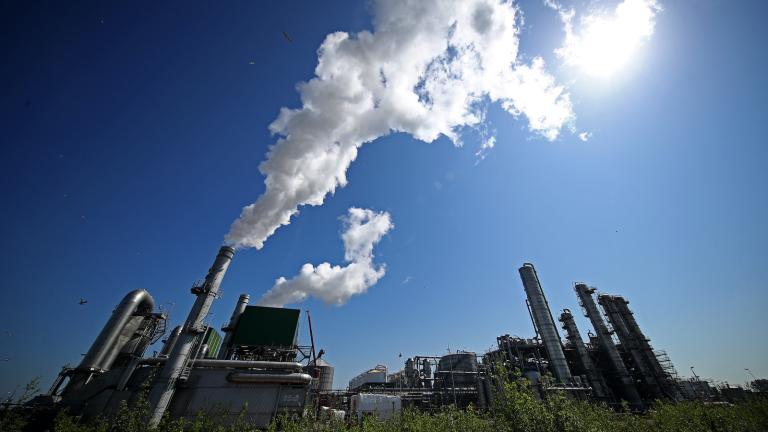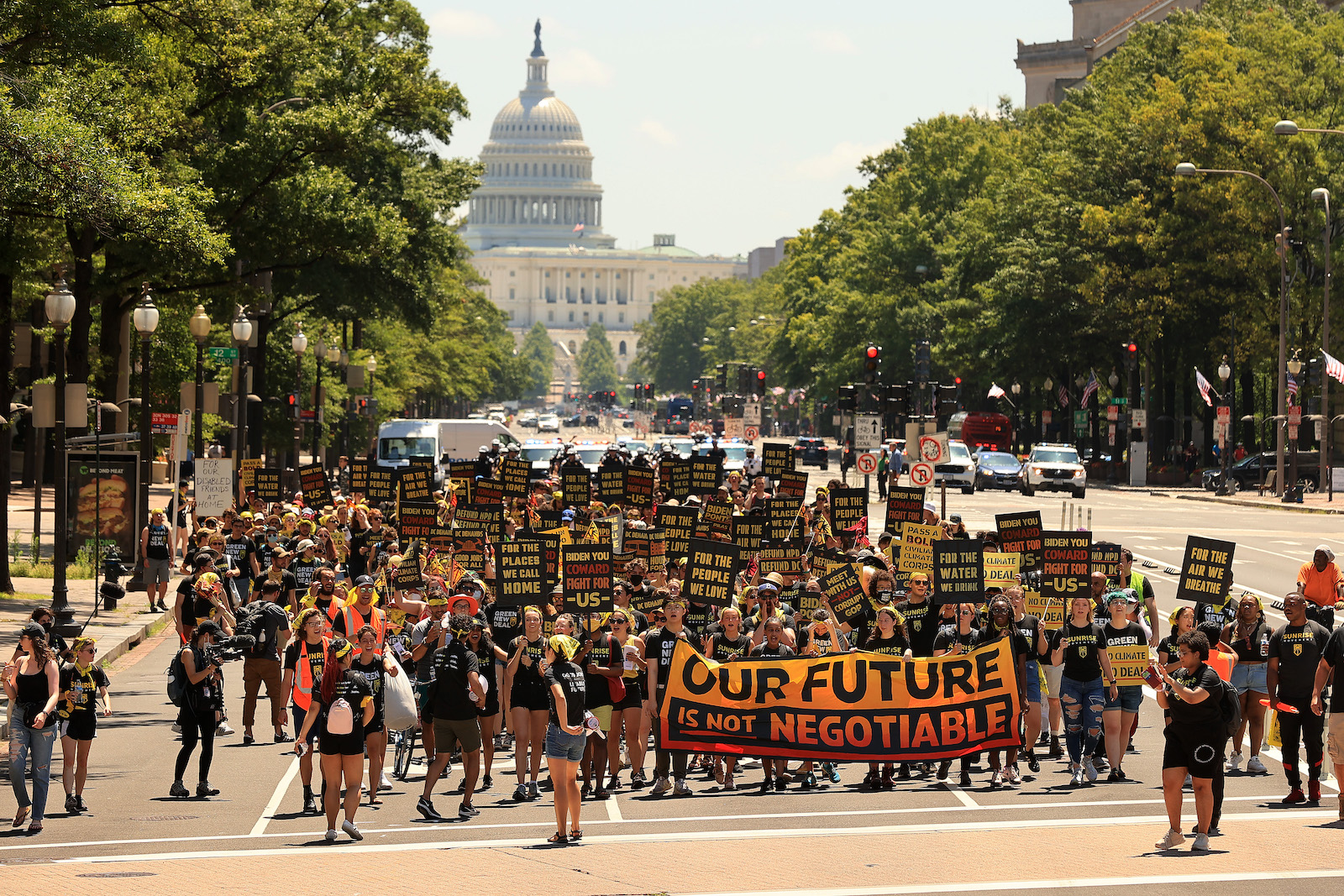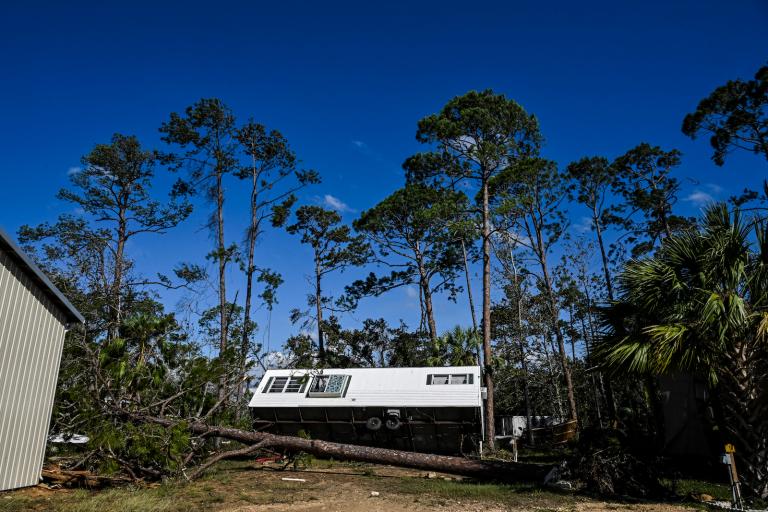In a summer dictated by converging climate disasters, two of the nation’s largest progressive climate organizations have been preoccupied with their own crises.
Both the Sierra Club and the Sunrise Movement face criticism for workplace cultures that attempted to cover up episodes of racism and abuse, while the Sierra Club is also facing allegations of repressing acts of misogyny and sexual misconduct. The Sierra Club is facing internal upheaval after a former staff member came forward with allegations of being raped by a “celebrated” Sierra Club employee in the summer of 2020. Meanwhile, the Sunrise Movement, known for its diversity and pivot away from the historically majority-white climate movement, is facing allegations of “tokenizing” its members of color for political advantage.
The fallout comes at a critical time in their fight against climate-induced disasters and the fossil fuel industry. As leaders in the struggle for environmental justice — which inherently involves defending women and communities of color — their efforts may be thwarted by not supporting these vulnerable groups within their respective organizations. Both groups, aware of the bad optics, are trying to react swiftly.
Earlier this month, Michael Brune, the executive director of the Sierra Club, which is the largest environmental organization in the U.S., announced his resignation. Sierra Club President Ramon Cruz says the organizational shake-up is part of a years-long process to re-examine how the organization affects its community. “We recognize the impacts of our organization’s history and harm, and we are deeply dedicated to fundamental transformation,” Cruz told Grist. “We are making substantial changes to our policies and committing substantial resources to much needed capacity, and we know that the trajectory for transformation will be a long one.”
While less abrupt in comparison, Sunrise Movement leadership told Grist that the organization is “imperfect,” but is ready to grow. “Going forward, organizational management, including our newly formed Steering Team will be holding the organization accountable to ensure that this work continues,” representatives from the Sunrise Movement wrote to Grist. “We’ve always believed a cross-class, multi-racial movement is the only way we can confront the biggest crises of our time, which is why we’re constantly experimenting with new strategies, structures, tools, and programs.”
The Sierra Club’s troubles were recently highlighted in a report commissioned by the organization, which outlined a culture of regular abuse against “‘vulnerable’ individuals who had less societal privilege and positional power.” The Sierra Club currently employs 850 paid staff members but has nearly ten times as many volunteer members across the country. The report’s executive summary explained that the organization’s “decentralization” and use of volunteers allowed abusers to side-step accountability, fueling a culture of “anger and aggression — yelling, berating, shaming, and otherwise demonstrating unprofessional and abusive behavior in the workplace.”
The investigation conducted by Ramona Strategies, a women-run consulting group focused on restorative processes, also called out the organization for failing to have a team dedicated to responding to internal culture concerns, writing “the current model is plainly insufficient, particularly for an organization that professes a commitment to equity and inclusion.”
The Sunrise Movement’s public controversy was fueled by internal dissent, first made public by Alex O’Keefe, one of the first Black members to work for Sunrise full-time. That is until he was allegedly fired for outing the organization’s practice of tokenizing, using, and ignoring Black members. (The Sunrise Movement has publicly denied the claim that O’Keefe was fired for this reason.) “It was a hellish battle to transform white-savior, socialism-averse messaging to the radical vision we sometimes achieved,” O’Keefe wrote in a viral tweet that has since been deleted.
The allegations have left Black organizers in the organization at a crossroads, according to a Buzzfeed News report. Some have questioned whether it makes sense to continue organizing with the climate justice group, while others have said making the allegations public hindered their ability to re-build the group from within. “Since the release of the letter, the emotional burden and the work of building and rebuilding fell most heavily on black staff — namely Black women,” a group of Black staffers wrote in response to O’Keefe’s Twitter thread. “The truth is this: the issues raised … forced the Sunrise Movement into a series of hard reflections, and Sunrise will ultimately be better for the resulting changes.”
Both organizations have realized the need to double down on their missions to support and uplift communities facing the brunt of the climate crisis. The necessary internal work, organizational leaders say, can’t take away from their role in the environmental sphere. While there is “much to say on the issues raised,” Black Sunrise staff members wrote, “we will say it while still fighting for the Green New Deal, climate justice, and our collective liberation.”



